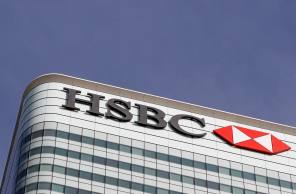

HSBC has been told to repay the costs of an income protection policy to a client after an ombudsman ruled it had been mis-sold.
A client, referred to as Ms L, accused HSBC of mis-selling her a short-term income protection policy in 2009 after meeting with one of the bank's financial advisers.
The policy promised to pay out for up to 12 months, after a waiting period of four weeks, if she were unable to work due to accident or sickness.
But the customer complained about the sale in 2016 and took the case to the Financial Ombudsman Service.
She said it had been mis-sold because she had been entitled to six months' full sickness pay from her employer.
But HSBC argued the policy was still suitable because she would benefit for six months after the work sick pay had ended.
But ombudsman Kim Parsons said: "I can't see that the adviser ever asked Ms L about her employer's sickness benefit.
"There is no reference to it in the fact find. I would have expected that this would be of paramount important in deciding what type and level of benefit she needed."
A chart within the report implied she had no sickness benefit from her employer.
Ms Parsons said: "My conclusion is that the adviser didn't bother to find out this information."
The HSBC policy would still have paid out for the 12 months period, had she needed it, even despite her employer's sickness benefit.
But Ms Parsons said the policy was unnecessary because of the employer benefit and the adviser should have found out about this financial support.
"If he had done so, I doubt that he would still have chosen to recommend this policy," Ms Parsons added.
"I consider that the adviser's failure to take into account Ms L's sickness benefit from her employer means this policy was mis-sold."
Ms Parsons suggested HSBC refund the premiums she has paid for this policy plus interest at an annual rate of 8 per cent.
While the bank argued the redress should be reduced to take into account the amount Ms L would have paid for an alternative policy, Ms Parsons said it did not think there was suitable alternative and "HSBC has offered no example of it".



